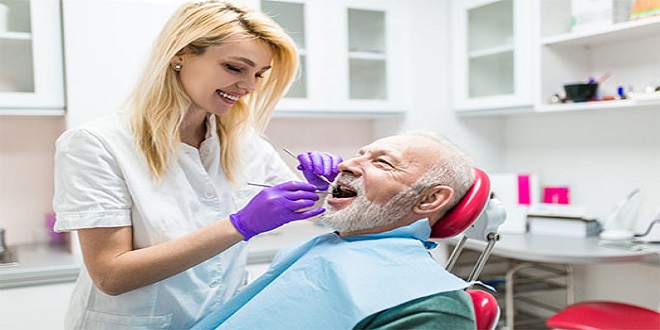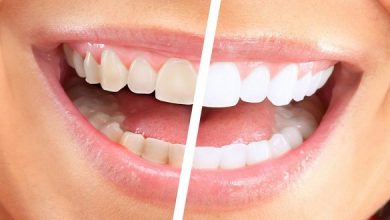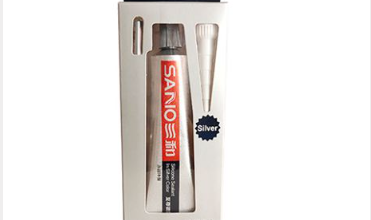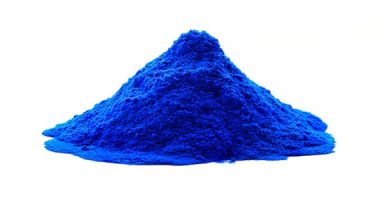Primary Doctors’ Guide to Maintaining Your Oral Hygiene As You Get Older

Dental hygiene can make a big difference in our overall health and well-being. This is especially important as our teeth age and are more vulnerable to cavities, tooth decay and tooth loss. As you age, your teeth may change in color and lose their original shape.
Maintaining good oral hygiene can reduce the effects of ageing on your teeth. We will talk about the effects of aging on your mouth and offer tips to help you maintain a healthy mouth.
What happens to your mouth as you age?
As we age, our chances of developing gum disease and mouth infection, tooth decay, tooth loss, or oral cancer increase. These risks can be minimized or avoided by practicing good oral hygiene.
Changes in color
As you get older, your teeth may change in color. The cumulative effects of food dyes and colorings over time may cause this change in color. The enamel thinning also causes color changes.
The enamel wears down and exposes the dentin underneath. Dentin is the outermost layer of teeth and can become yellowed with age.
This is an inevitable part of aging. There is nothing you can do to stop it. Good oral hygiene can soften yellow tones and remove external stains. You might be able reduce the cosmetic effects by regularly using teeth whitening products.
Wear and Tear
As we age, our teeth begin to show signs of wear and tear just like our bodies. Sometimes called “attrition”, this wear and tear can have a significant impact on how our teeth develop as we age. Your mouth is subject to what you eat and drink throughout your life.
Wear and tear begins the moment a tooth appears in our mouth. People who grind or clench their teeth regularly experience a higher rate of wear and tear. If we don’t brush our teeth regularly and maintain good oral hygiene, the wear and tear can be more severe and more intense.
Be mindful of what foods and drinks you eat to slow down wear and tear. Avoid starchy, sugary, and acidic foods.
Tooth decay
Our mouths become drier with age and are more susceptible to decay and disease. Gum disease and decay are both caused by bacteria, so it is important to keep your teeth clean.
Plaque buildup can be avoided by brushing twice daily, flossing every day, drinking plenty of water and avoiding simple sugars.
Regular checkups with a dentist are necessary to ensure good oral health. They can also help you to promptly address any problems. For a comprehensive list of the most convenient healthcare providers near you, click this link: primary care doctor nearby me.
Tobacco use can have adverse effects
Long-term use of tobacco products can increase your chances of developing mouth cancer. Smokers are twice as likely than non-smokers to develop gum disease. You may also get stains from nicotine, which can be caused by using tobacco products. Discoloration can be caused by vaping or using electronic cigarettes.
These effects only get worse as we age. That is why dentists suggest quitting smoking.
Effects of medication
As we age, we take different medications. Dry mouth, or xerostomia, is a common side effect of many of these medications. Some medications, such as those that treat heart disease, allergies, depression, or hypertension, can reduce saliva production and cause dry mouth. The saliva keeps the mouth moist and fights against decay-causing bacteria through its flushing action.
Take extra care when taking any medication. Ask your doctor about side effects, and what you can do to avoid them. If you experience xerostomia, contact your dentist. They may recommend mouthwash to keep it from getting worse.
What can you do to maintain good oral health as you age?
Unfortunately, our teeth cannot be stopped from aging. We can, however, reduce the negative effects of aging on our dental health. A stable oral hygiene regimen can help you maintain your oral health and keep your smile young and healthy.
Doctors agree that regular oral hygiene practices like flossing and brushing can reduce the effects of ageing. Here are some tips to maintain good oral hygiene.
- Use a soft bristle toothbrush twice daily to brush your teeth.
- Floss frequently.
- Stop smoking if you’re a smoker.
- Dentures should be removed every night, and cleaned every morning.
- Avoid sugary and acidic foods.
- A custom-fitted nightguard can help slow down wear and tear if you grind or clench your teeth.
- To fight tooth decay, drink lots of water.
- If your teeth are starting to turn yellow, you can use a professional whitening procedure.
- Regular cleanings should be scheduled with your primary care doctor or dentist at least once every six months.
Your dentist and you can work together to prevent any problems with your teeth and help you achieve the life goals that will allow for a happier and healthier lifestyle. Let’s take a look at some ways you can maintain good oral hygiene.
Daily reminders
You can make oral hygiene more enjoyable by setting daily reminders to remind you at least twice a day to brush your teeth for at most two minutes. Make sure to remind yourself to floss at minimum once per day.
Take Care of What You Eat
Make sure you eat healthy foods and drink plenty of water to maintain your oral hygiene. Drinking lots of water can keep your mouth hydrated and prevent decay-causing bacteria. Sticking to whole grains, low-sugar fruits and crunchy vegetables is a good idea.
Make an appointment to see the dentist regularly
Keep track of any symptoms you may experience. First, make sure to keep track of any symptoms such as dryness or pain in the teeth. Also, be sure to schedule regular appointments with your dentist for any dental problems. Even if your dentures are not removable, it is still important to visit the dentist on a regular basis.
Weather forecasts play a crucial role in our daily planning. Knowing Kal Ka Mausam helps you prepare for the day ahead. Whether you need to carry an umbrella or wear a light jacket, a reliable weather forecast can guide you.
Conclusion
As we’ve discussed, the risk of developing oral health problems can increase with age. These problems can be avoided by taking good care of your teeth.
It is important to maintain good oral hygiene. This can help reduce the signs of aging and protect against viruses such as COVID-19.
You can maintain a healthy smile and your teeth by taking care of your oral hygiene. As we age, oral hygiene becomes more important.



